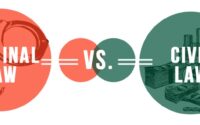DRUG ABUSE CAUSING ECONOMIC ISSUES, SOCIAL INTEGRATION-DELHI HIGH COURT DENIES BAIL TO NEPALI PEDDLER
This article is written by A.SivaSangari from VIT Chennai.
CASE NAME: MADAN LAMA VS NARCOTICS CONTROL BUREAU[i]
FACTS OF THE CASE:
On 18.12.2020, a piece of confidential information was obtained about an unknown Nepali national, dressed in yellow and came near Gate No. 1 Metro Station East of Kailash, New Delhi between 6: 00-7: 00 pm and it was suspected that he may be carrying some drugs to give it to his client. And the whole information was converted into writing. After completing the required formalities, the team was formed to judge the person who, according to a secret informant, was carrying narcotics.While the group was waiting near Gate number 1 of the metro station, a man was seen to be wearing the yellow sweatshirt whose description was similar to that of the secret details with a black shoulder bag.
The person wearing a yellow T-shirt was given a small packet to someone wearing a black jacket and the black jacket person give a sum of money to the person wearing the yellow sweatshirt. On that point, both were caught by the NCB team again they were asked who they were, private information as well the purpose of the visit. During the initial inquiry, it was revealed by Madan Lama, that he is a Nepali citizen and the second person identified himself as HareshRawal and the applicant admitted that he had charas in his wallet and used to sell the same to his customers. HareshRawal acknowledged that he had come to buy charas and that he had transferred Rs.9, 500 / – to the applicant and the applicant handed over the package containing charas. And then the petitioner applied for bail.
RULES APPLICABLE:
- SECTION 439 OF CRPC
Special Powers of High court or Court of Session regarding bail- Section 439 of the code states that any orders passed under section 436 of the code shall be appealable.
- The order made by the magistrate to the session’s judge is appealable.
- In case when the court of sessions passes an order to the court where an appeal lies from an order made by such court.
- SECTION 8, 20(b), 29 of NARCOTIC DRUGS AND PSYCHOTROPIC SUBSTANCES ACT,1985
- SEC 8 OF NDPS ACT:
Section 8 deals with the prohibition of certain activities.No one –
- plant any coca plant or collect any part of the coca plant; or
- plant opium poppy or any other marijuana plant or
- produce, carry, sell, buy, transport, store, use, consume, import, export to India or smuggle any drug or substance which is Psychotropic
With an exception that the medical or Scientific purposes in the manner and extent provided for by the provisions of this Act or the laws or regulations made under it.
- SEC 20(b) of NDPS ACT:
Section 20 (b) of the NDPS Act states that if a person manufactures, owns, sells, buys, distributes, imports, exports or uses cannabis and the amount involved is less than the maximum commercial but greater than the minimum amount, then the person will be punished with severe imprisonment for a period of up to ten years and a fine of up to one lakh rupees.
- SEC 29 OF NDPS ACT:
Any person who consents to, or participates in, a criminal offense, is liable to punishment under this Chapter, whether or not the offense is committed as a result of this delay or in the case of such criminal conspiracy, and in addition to anything contained in section 116 of the Indian Penal Code (45 of 1860), may be punished by the penalty imposed on the case.A person is acting in or is part of, a criminal conspiracy to commit, in terms of this section, an Indian, who is acting in or participating in a criminal conspiracy to commit any act outside the territory of or outside India-
(a) Maybe an offense if committed within India; or
(b) Under local laws, is a drug-related or psychotropic drug that has all the legal requirements required to make that case the same or similar to the legal requirements required to make it a criminal offense under this Chapter, if committed within India.
COURT’S RULINGS AND OBSERVATIONS:
The petitioner has no roots in society because he is a Nepali citizen and can be considereda potential flight hazard. Thus it satisfied the fact that there is a risk of fleeing from justice if he is released on bail. In addition, if the applicant is released on bail, we can’t deny that he would never again engage in such activities. And it should be noted that the applicant has filed a lawsuit under the NDPS Act and the same will not be rated with cases under IPC or other charges. Dangerous effects of the drugs on an individual and community level have been studied widely. The threat of drug abuse has also begun to reach a height in the country and similar results can be obtainedacross the board from creating economic crises to social disintegration. The purpose of the NDPS law was to prevent this catastrophe. Thusthe intention must be kept in mind when considering bailrelating to the NDPS Act. The applicant is also alleged to have committed himselfto a case punishable by up to ten years in prison. Moreover, the case here is different from the case of HareshRawal, who was given a vide order dated 03.06.2021 as charges are still pending frame in an instant case. By seeing the facts and circumstances of the present case, this Court declared that this is not a valid case for bail. Therefore the petition was dismissed.
STATED CASES:
- MinniKhadim Ali Khun vs. State NCT of Delhi[ii]
This case dealt with the aspect of granting bail in the case of a small quantity of contraband substances and if it is recovered the offense will become a bailable one.
- Prasanta Kumar Sarkar v. AshisChatterjee[iii]
- Ram GovindUpadhyay v. Sudarshan Singh[iv]
- Mahipal v. Rajesh Kumar[v]
In these three judgments, the factors to be considered while giving bail were laid down.-
- Whether there is any prima facie or rational reason to believe that the defendant had committed a crime
- the nature and extent of suspicion
- the severity of the punishment if a possible conviction
- the risk of the defendant fleeing or absconding, if released on bail
- character, and behaviour of the defendant
- the chances of the case being repeated
- reasonable fear of witnesses influenced and
- The danger, of course, of perverted justice granting bail
It is clear that if the High Court does not advertise in these relevant and mechanical considerations while granting bail, the said order will be violated by the vice of irrationality, which makes it seem illegal.
This article is edited by DhruvKapoor, FIMT, affiliated to GGSIPU
[i] BAIL APPLN-18/12/2021
[ii] 2012 SCC OnLine Del 2657
[iii] (2010) 14 SCC 496
[iv] (2002) 3 SCC 598
[v](2020) 2 SCC 118


